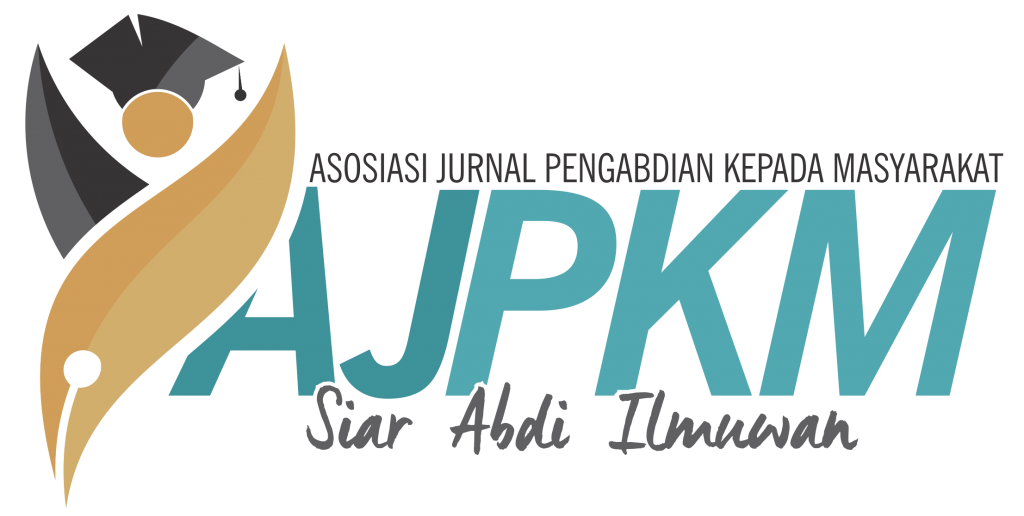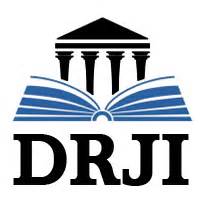PENDAMPINGAN SERTIFIKAT HALAL PRODUK PADA UMKM SEKTOR MAKANAN DAN MINUMAN DI KECAMATAN GRATI KABUPATEN PASURUAN
Abstrak
Penerapan UU No 33 Tahun 2014 mengenai sertifikasi halal, untuk usaha kuliner, pengurusan Sertifikat Halal berlaku hanya sampai tahun 2024. Badan Penyelenggara Jaminan Produk Halal (BPJPH) telah menerbitkan UU UU 33 Tahun 2022 tentang Juknis Pendamping Proses Produk Halal. Oleh karena, pengurusan sertifikasi halal diberikan jangka waktu hingga tahun 2023, maka Tujuan dari kegiatan ini adalah memberikan pendampingan sertifikasi halal produk pada UMKM sektor makanan-minuman di Kecamatan Grati, Pasuruan untuk mendukung akselerasi Jaminan Produk Halal pada UMKM.Pengabdian ini berfokus pada usaha sektor makanan minuman binaan LAZISNU (Lembaga Amil Zakat dan Shodaqoh) di Kecamatan Grati, yang terpusat di Sentra UMKM Pujasera di Desa Gratitunon, sebagai bagian dari upaya edukasi dan advokasi bagi pelaku UMKM untuk menyiapkan diri merespon aturan mengenai legalitas Halal Produk, dan memberikan pendampingan untuk self declare. Metode pengumpulan data dengan pembagian kuesioner sedangkan metode yang digunakan adalah Focus Group Discussion dan Sosialisasi Prosedur Pengajuan Sertifikasi Halal oleh Tim Pengabdian. Hasil dari kegiatan pengabdian diketahui bahwa (i) pelaku UMKM tidak banyak yang memahami proses pengajuan sertifikasi halal (ii)kurangnya pemahaman masyarakat terhadap konsep halal (iii) berdasarkan hasil FGD diketahui pula tidak sedikit UMKM yang sudah mendapatkan sertifikat halal. iv) terdapat beberapa produk potensial sebagai produk khas Kecamatan Grati tetapi masih belum mendapatkan sertifikasi halal.
Implementation of Law No. 33 of 2014 regarding halal certification, for culinary businesses, the processing of Halal Certificates is valid only until 2024. The Halal Product Assurance Organizing Agency (BPJPH) has issued Law No. 33 of 2022 concerning Technical Assistance for Halal Product Processing. Because the processing of halal certification is given a period of up to 2023, the purpose of this activity is to provide assistance with halal product certification to MSMEs in the food and beverage sector in Grati District, Pasuruan to support the acceleration of Halal Product Assurance for MSMEs. This service focuses on sector businesses. food and beverage assisted by LAZISNU (Amil Zakat and Shodaqoh Institute) in Grati District, which is centered at the UMKM Pujasera Center in Gratitunon Village, as part of an education and advocacy effort for MSME actors to prepare themselves to respond to regulations regarding the legality of Halal Products, and provide assistance for self-declaration. The data collection method is by distributing questionnaires while the method used is Focus Group Discussion and Socialization of Halal Certification Submission Procedures by the Service Team. The results of community service activities show that (i) not many MSME actors understand the process of applying for halal certification (ii) there is a lack of public understanding of the halal concept (iii) based on the results of the FGD it is also known that not a few MSMEs have received halal certificates. iv) there are several potential products as typical products of Grati District but they have not yet received halal certification.
Kata Kunci
Teks Lengkap:
PDFReferensi
Amalia et al. (2020). Covid-19 : Can Halal Food Lessen the Risks of the Next Similar Outbreak, International Journal Of Applied Business Research, 2(2), 86–95.Donthu et al (2020). Effects Of COVID-19 On Business And Research. J. Bus. Res, 117, 284–289
Freddy Rangkuti. 2006. Riset Pemasaran. Gramedia Pustaka Utama, Jakarta.
Gillani, S. H., Ijaz, F., & Khan, M. M. (2016). Role of Islamic Financial Institutions in Promotion of Pakistan Halal Food Industry. Islamic Banking and Finance Review, 3 (1), 29-49.
Jusuf Udaya, L. Y. (2013). Manajemen Strategik. Yogyakarta: Graha Ilmu.
Karim et al. (2020). The Movement Control Order (MCO) for COVID-19 Crisis and its Impact on Tourism and Hospitality Sector in Malaysia. International Tourism and Hospitality Journal, 3(2), 1–7.
Kotler, Amstrong (2004). Prinsip-prinsip Pemasaran, Erlangga, Jakarta.
Lu et al. (2020). The perceived impact of the covid-19 epidemic: Evidence from a sample of 4807 SMEs in Sichuan Province, China. Environmental Hazards, 19(4), 323–340.
Samori, Z., Salleh, N. Z., & Khalid, M. M. (2016). Current Trends on Halal Tourism: Cases on Selected Asian Countries. Tourism Management Perspectives, 19, 131-136.
Shafi, et al (2020). Impact of COVID-19 pandemic on micro, small, and medium-sized Enterprises operating in Pakistan. Research in Globalization, Vol 2,
Thaha. (2020). Dampak covid-19 terhadap UMKM di Indonesia. Jurnal Brand, 2(1), 147–153.
Umar. (2008). Strategic Management in Action. Jakarta: PT Gramedia Pustaka Utama.
Vanany, et al (2019). Determinants of halal-food consumption in Indonesia. Journal of Islamic Marketing, 11(2), 516–530.
DOI: https://doi.org/10.24198/kumawula.v6i3.46964
Refbacks
- Saat ini tidak ada refbacks.
Kumawula: Jurnal Pengabdian kepada Masyarakat Terindeks Di:











21.png)













